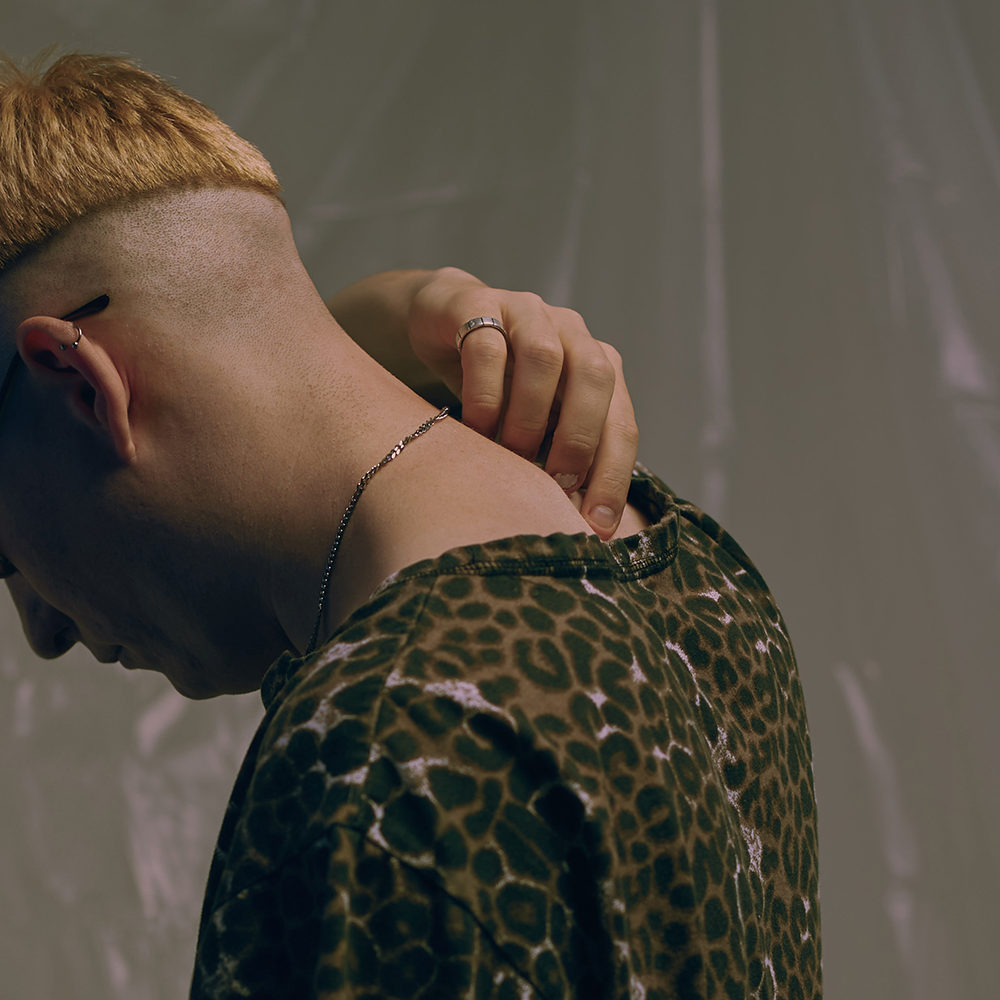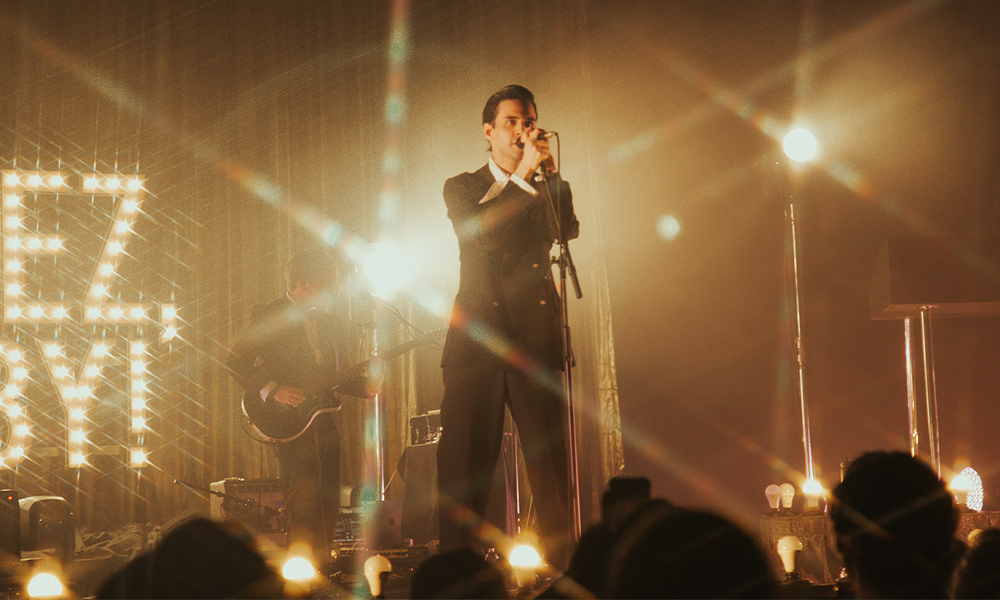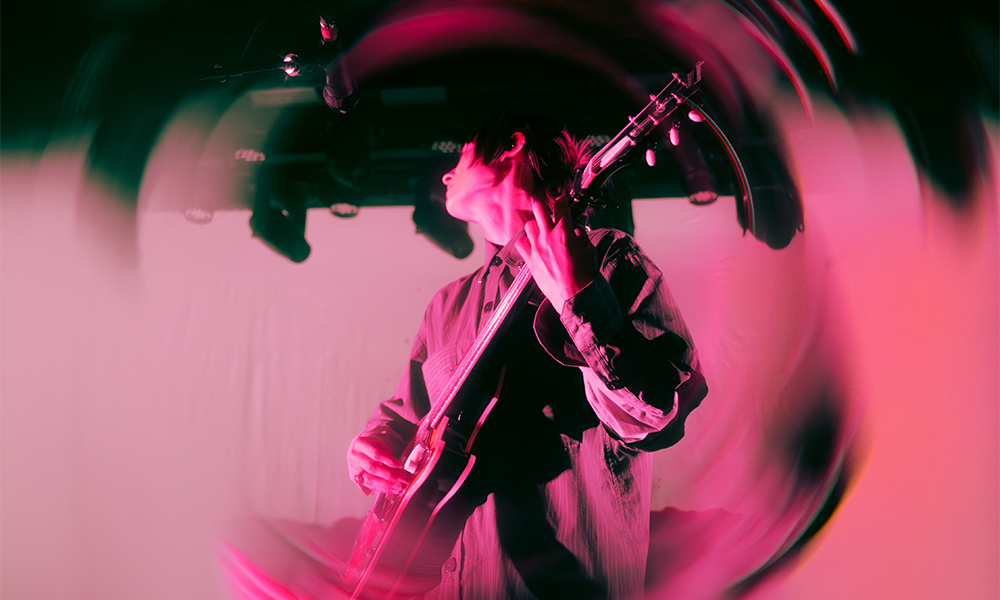Ella Vos is the kind of artist whose songs, if stripped of their infectious melodies and bouncy bass, would be considered poetry. Ella’s lyrics convey personal stories that are universally relatable, but still written in a language that is singular to her own experiences. Never one to steer away from difficult topics and necessary conversations, Ella confronts the challenges faced by most women in her music, while still uplifting and empowering them by exposing her resilience, flaws and confidence. Her new album Words I Never Said—out this Friday, November 17th—delves deep into mental health, womanhood, equal rights and relationships.
When did you start singing and playing music? What was it that inspired you?
ELLA VOS — So I started playing piano when I was five [years old] and I was really drawn to it, I think because it was a really safe place for me and it kind of became a place where I was able to really express myself. And I was kind of a quieter kid and so piano was like a place where I could really feel like I could say what I wanted to say, but I didn’t have to talk or anything like that. So, I started playing when I was five and I was training to become a classical pianist. I always wanted to be songwriter and be in a band, but I just never thought I’d be able to do that, so I played classical piano until like, all the way through college. I was studying classical piano performance and I kind of at the last minute joined a band ‘cause they kind of persuaded me to join they were like “Oh, you have to be in our band you’re such a good keyboard player” and I was like “ok, fine… I’ll just do it.” And so during that time, that was in college right, I really started to learn how to write songs and perform completely different music, from rock music and I just fell in love with it and I loved finally being able to create music instead of just performing things that other people have written. And that’s really when I started to sing too, I didn’t grow up singing a whole lot and music is something that is really new to me and I would never consider myself a singer, it definitely feels more like a tool for me to like just say the words that I want to write.
Yeah, just to communicate it more clearly?
EV — Yeah, yeah. And then one of the things that like triggered me to become a solo artist and really be writing my songs one hundred percent, like on my own not in the band context was when I found out I was pregnant. I was playing in two different bands… and when I was pregnant I just realized that it really wasn’t going to change whether I wanted it to or not, I knew my life wasn’t going to look the same anymore and I kind of was like: “What do I really want to be doing? Do I want to be playing in these other bands or do I want to be writing the songs I’m longing to write?” And so while I was pregnant, I started writing my own music and started working with a producer, and I know it’s like literally the worst time to be starting something like that… I just felt like I had to do it then, and it would be too difficult to start any later. So yeah, that triggered me becoming a solo artist, I guess.
Wow!
EV — Yeah, it’s crazy because I tell people that story and they’re like that’s not typically what a woman does when they’re pregnant, they’re usually like planning to take time off from their work and spend time at home, figuring that out which—in retrospect, I wish I would’ve given myself a little bit more time to like adjust to becoming a mom but at the same time I feel like I had to do it because I wasn’t going to be a happy person if I didn’t.
In a way, that was, you know, your way of preparing because you were just kind of trying to rationalize those emotions and how you were inspired at the time… so I mean everybody has their own way…
EV — Yeah, exactly!
Most of your songs are empowering for women, in the sense that you aren’t to be vulnerable, strong, flawed and confident at the same time. Why is it so important for you to communicate that message in your music?
EV — Yeah, it is. It’s important, it’s also like… it’s been challenging but also like I love the challenge it’s been for me to put that out there. It’s like exactly what you said, to be flawed but be strong at the same time… like it is so important to embrace that and I feel better as a person, embracing that, and I think other people can sense that in the songs as well and hold onto that. So yeah, it is very important.
Were there any female artists for you, even while growing up, that inspired you in that same way that you hope your music will inspire other women? Is there any artist or song you can point to that made that impact?
EV — Kind of! I remember being—I don’t know how old I was—I remember I wasn’t like a huge Alanis Morissette fan, I think I was too young to like really get into her music but I just remember passing through it at moments throughout my life and being like: “Oh she’s so cool she dresses and can say what she wants.” And I remember thinking like I really want to be able to do that and not be worried about what people might think if I say what I feel. And her songs have come up again recently where I just… I just feel that kind of empowerment I guess. And I have a tendency to water everything down, about how I feel, and I think writing this album is really pushing me through that and not keeping things on the surface, so much as like I think would be more natural for me to do and just really be myself and be vulnerable. I couldn’t really think of anyone else, but I think she’s a pretty good example.

You were talking about how it [songwriting] did force you to face those feelings that you have, I was going to ask you: was it therapeutic? Like for example, the song “White Noise,” dealing with Postpartum Depression—and so many women deal with that, in America—having to write that down and feeling the need to write it down, was it therapeutic for you?
EV — Oh yeah, one hundred percent. I think, when I was writing that song I didn’t even… I think through writing that song… through writing that song then I was able to realize how I felt. Like I couldn’t put it into words any other way, I didn’t know how to. So it really was like therapeutic for me to like have that as like a tool to be like “Oh, this is how I’m feeling.” And it made me acknowledge it, I think, and then be able to kind of move forward because I think anyone dealing with depression I think it’s really hard—I didn’t even know I was depressed at the time, I thought I was fine. And I thought I’m just tired, I’m just not eating, or I’m just not exercising… I didn’t realize that something was actually imbalanced in me until I was writing that song. I was like, ok, I think there’s something in here that I’m definitely trying to express. But yeah, a lot of my songs are definitely therapeutic to me because I think it’s just, it’s so much easier to express yourself through music and I think that’s just always been true for me as like a listener and a writer. I don’t know, it’s just so much more like… it feels more natural and simpler to… I don’t know… to be able to feel your feelings through a song.
And then you also see the response of how many people actually connect to this because did you feel while writing it like you were the only one that was going through this? Did you feel very—I don’t know how to put it—did you feel very alone while writing that? And then when you put it [the music] out there and people actually listen to it, did you get a response at all?
EV- Yeah, yeah… from all different people and like different people in my life: family, fans that I’ve never met. A lot of people saying like “Thank you for saying this, this is how I feel, this is how it is.” And I’ve seen people share on Facebook and just like: “This is exactly how it feels like! And I don’t know how to explain it but the song says it for me.” And then down to really personal relationships, like my mom for example, after I told her what the song was about… then she told me—which she had never told me before—”I had a really hard time when you and your brother were little and I didn’t know it and I never told anyone I was struggling. Because you know, I thought I was alone and I thought I just had to get through it.” So yeah! It’s really powerful!
Not only do you tackle the subject of womanhood, equal rights and respect in relationships… you also discuss siblinghood in your song “Little Brother.” That’s something that you rarely hear in music. When was that written and how did it feel when you wrote it?
EV — It was intense because I think I was really just mostly, and still, like really scared because how my brother—like “Hey, like I know I haven’t been there for you the way you’ve been for me and… but I really want to be. And I do think about you and I love you and I know I don’t say it enough.” Even then I, like, had to write a song about it to feel like I could tell him. Which is like… it’s not easy! I don’t think it’s easy to come out and say that even though you feel it, and I don’t know why, maybe it’s just me! But yeah, it was emotionally really intense. I think it’s one of my favorite songs I’ve written too because it feels really powerful thing still.
It is! And I adore that song, and it did make me cry… but especially even just reading the lyrics. Listening to the song, I mean you have the music accompanying it and everything, of course it moves you, but it’s one of those [songs] where if you were to just publish it as a poem or a piece of writing… you would get the same emotions. You know other people would connect to that, right away.
EV — That is something I always like, want to try to do with all my songs, is like for them to stand on their own. You know, as much as they can. That’s cool!
In our current state, here in the United States, what kind of impact do you hope your words make, through your music? We’re at a point where we’re struggling to find hope on the news or wherever, and at times like these we usually look to art and music to soothe us, to heal us. So what do you hope your music brings to people?
EV — I think the greatest thing would be for people to be able to feel connected to, not just the music, but to feel reconnected with each other. And maybe, I think like what you said, to feel hope. Like one of the things that I really wanted to do in my song “You Don’t Know About Me,” like to me it’s a protest song, but it still is like happy and upbeat… very much like “this is not going to weigh me down, I’m going to move past it.” So I think that’s what I would help, to be kind of a light in that way—even though there’s so much darkness and negativity—to just always keep bringing it back to this like hopeful place where we can like feel connected to each other and feel like we can get through these things. I think one of the most coolest things I’ve experienced this year is actually being able to have these conversations with so many different people, that we would never have before about just our country, really. Like I’ve never had so many conversations about politics ever in my life and even just like the way our world view and our perception on how things should be… I think all the conversations that we’ve been having since January… I think they’re really important. It’s like the silver lining through everything that’s going on, and I think these conversations will actually cause us to like change and take action. I don’t know, I just think that music is really powerful and I hope it encourages that, whether my music does or not—I hope it does—but regardless I think being open and having a conversation is the most important that can happen.
Yeah! And you’re starting the conversation with your music! By just sharing your experiences. Because the best thing to do right now is to share everybody’s experience so that it’s out there and that people face it. Whether they’re on Spotify or on iTunes, if they click on your song, they hear a story.
EV — Yeah, exactly. I think it’s something that like… it’s what I love about the music that I listen to, and I just want… like, I think it’s important to continue that too. Sharing those stories.













